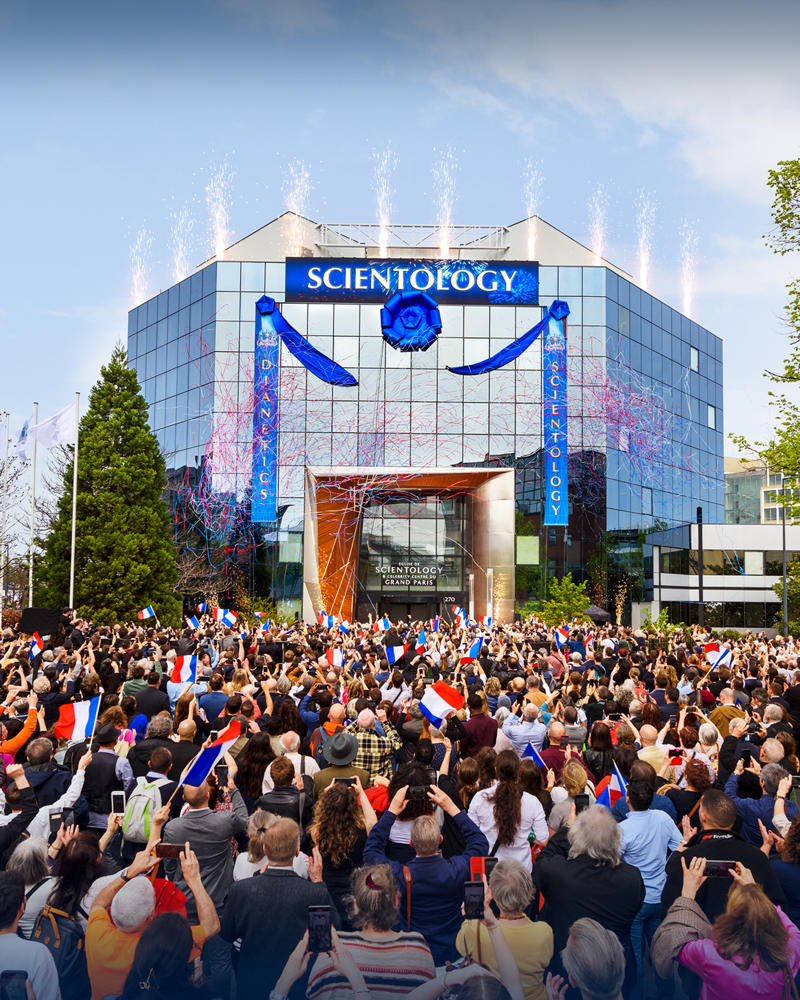Exploring Scientology: Insights right into Its Practices and Ideology
Exploring Scientology: Insights right into Its Practices and Ideology
Blog Article
Disproving Myths: Separating Truth From Fiction Concerning Scientology

Beginnings of Scientology
The origins of Scientology trace back to the mid-20th century when L. Ron Hubbard, a sci-fi writer, started the idea system in the 1950s. Hubbard's advancement of Scientology came from his earlier self-help system called Dianetics, which he presented in the 1940s - Scientology. The shift from Dianetics to Scientology noted a shift towards a more extensive spiritual approach that integrated elements of psychology, Eastern spiritual traditions, and Hubbard's very own theories on human existence
Hubbard's exploration into the human mind and spirit resulted in the creation of Scientology as a religious beliefs centered around the idea of spiritual knowledge and self-improvement through a process called bookkeeping. Bookkeeping, a type of spiritual counseling, intends to help individuals overcome psychological and emotional obstacles, recognized as engrams, that prevent individual growth and understanding.
As Hubbard's teachings acquired popularity, Scientology developed into an international motion with a substantial following. Regardless of controversies and criticisms surrounding its practices and ideas, Scientology proceeds to draw in fans looking for spiritual fulfillment and personal advancement.
Core Ideas and Practices

An additional basic aspect of Scientology is the idea of the Thetan, the spiritual significance of an individual that goes beyond the physical body. Followers aim to understand and strengthen their connection to the Thetan with different practices such as research study courses and purification routines.
The Church of Scientology likewise positions a strong focus on the importance of personal duty and the belief that individuals have the power to shape their own destinies. Through adherence to honest standards and click now the pursuit of self-improvement, professionals of Scientology aim to accomplish better degrees of joy, success, and spiritual gratification.
Disputes and Criticisms
Among Scientology's core beliefs check and methods exists a landscape noted by debates and objections that have actually sparked intense debate and examination. Additionally, Scientology's condition as a tax-exempt religious company in some nations has been a factor of contention, with doubters saying that its methods are a lot more akin to a business than a religious beliefs.
An additional location of conflict borders the Church's therapy of critics and dissenters. Reports have emerged of harassment, scare tactics, and lawful dangers directed at those that talk out against Scientology. This has increased issues concerning flexibility of speech and the company's dedication to openness and responsibility.
While Scientology has vehemently denied much of these accusations, the criticisms and disputes surrounding the Church remain to fuel public hesitation and analysis.
Scientology's Impact in Culture
Scientology's impact prolongs to the world of mental health, where its sights on psychiatry and psychology have triggered disputes within the clinical neighborhood. In the realm of amusement, Scientology's organization with prominent celebs has brought focus to the religion, both favorably and adversely. The involvement of renowned numbers in Scientology has, in some instances, served to popularize the faith, while in others, it has drawn criticism and elevated concerns regarding the church's ideas and methods.
Debunking Common Misconceptions
The Church of Scientology is lawfully recognized as a religion in many nations, consisting of the United States, where it has tax-exempt status. Like other religions, Scientology provides spiritual support and methods for its participants.
One more mistaken belief is that Scientology compels its members to reduce ties with their family members. In reality, the church stresses the value of household relationships and urges participants to preserve healthy links with their loved ones.

Verdict
To conclude, it is crucial to separate reality from fiction when talking about Scientology. By examining its origins, core ideas, conflicts, and impact in culture, we can disprove usual misconceptions bordering this religious beliefs. It is critical to approach the topic with a essential and objective way of thinking in order to understand Scientology accurately and without bias.
Rooted in a structure of spiritual enlightenment and individual development, Scientology's core beliefs and methods include a diverse variety of concepts and routines. Central to Scientology is the belief that human beings are immortal spiritual beings who have actually neglected their real nature. The involvement of famous numbers in Scientology has, in some situations, served to popularize the religious beliefs, while in others, it has drawn objection and raised concerns concerning the church's ideas and methods.
The Church of Scientology is lawfully acknowledged as a religion in lots of nations, consisting of the United States, where it has tax-exempt standing. Like various other faiths, Scientology gives spiritual guidance and methods for its participants.
Report this page